In the European landscape of marine and ocean data management, significant progress has been made during the last two decades with developing standards, services, and establishing dedicated infrastructures.
In line with EMODnet’s underlying philosophy to “collect once, use many times”, these EU-funded infrastructures operate on the principals of free, open access, interoperable data to benefit all marine data users, from scientists and policy makers, to private industry, NGOs and the public.
Through the Copernicus programme and the European Maritime and Fisheries Fund (EMFF), the European Union (EU) has developed an internationally-recognised service for marine-data handling and sharing, building on main infrastructures such as the Copernicus Marine Service and EMODnet. the EU has developed an internationally-recognised service for marine-data handling and sharing, building on main infrastructures such as the Copernicus Marine Service and EMODnet. In addition, EU Research and Innovation programmes (H2020, FP7) have funded a number of important marine data initiatives such as SeaDataNet, SeaDataCloud and most recently Blue-Cloud as a framework for building on existing capability and further connecting data services, research infrastructures and e-infrastructures.
EU4OceanObs, through its component on G7 Future of the Seas and Oceans Initiative (FSOI) at a high-level, will support increasing the flow of global ocean data for more and better coverage. The GEO Blue Planet component, on the other hand, will focus on the interface between data products and services, and stakeholders to demonstrate use and tailor-services to different users, and also understand gaps in ocean data. This in turn will help the European Commission understand the needs for future ocean data, which will be used to inform the G7 FSOI Coordination Centre strategy, targeting policy decision-makers and funders of ocean observations.
The table below presents the main European and international data management infrastructures and networks supported by the EU, providing access to ocean data and products:
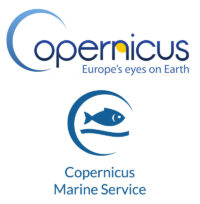 marine.copernicus.eu/access-data
marine.copernicus.eu/access-data
The Copernicus Marine Service provides access to an ocean product catalogue, allowing users from all over the world to download or visualise data across nearly 15 variables including hindcast, current and forecast data. It distributes ocean products from 3 sources: In situ and satellite observations, and numerical ocean models.
The Copernicus Climate Service (CS3) provides authoritative information about the past, present and future climate, as well as tools to enable climate change mitigation and adaptation strategies by policy makers and businesses. C3S distributes ocean climate products from 2 sources: satellite observations and numerical model reanalysis or seasonal forecast.
The European Marine Observation and Data Network (EMODnet) is a long-term marine data and knowledge initiative funded by the European Maritime and Fisheries Fund of the European Commission, Directorate General for Maritime Affairs and Fisheries (DG MARE). EMODnet is a network of over 120 organisations that collectively assemble, standardise, harmonise and integrate in situ marine data from diverse data providers across seven discipline-based themes: bathymetry, geology, sea habitats, chemistry, biology, physics, and human activities.
The EMODnet Central Portal offers a gateway to the wide range of data and added value data products e.g. basin-scale maps, some with predictive capability, for each theme.
EMODnet has a long-standing collaboration with the Copernicus Marine Service, both at the coordination level through Memoranda of Understanding, and at the operational level for data sharing, cross-validation and joint activities including joint workshops and use cases.
Furthermore, the EMODnet PArtnership for China and Europe (EMOD-PACE), an EU-funded collaborative project with China, aims to improve the sharing of marine observation data and marine expert knowledge by establishing a close working relationship between the National Marine Data and Information Service of China (NMDIS) and the European Marine Observation Data Network (EMODnet)
Blue-Cloud is a pilot project funded by the EU, aiming to aggregate EU marine data infrastructures to create a trusted virtual portal where scientists and other users can access the ocean data, tools and services and research outputs they need to perform research in a more efficient way.
The project will develop a pilot cyber platform to collect and elaborate multidisciplinary data and provide analytical instruments as well as computing facilities. Blue-Cloud will work towards establishing a marine-thematic European Open Science Cloud serving the Blue Economy, Marine Environment and Marine Knowledge agendas.
To facilitate and standardise access to data, the European Commission has funded the deployment of five cloud-based platforms.They provide centralised access to Copernicus data and information, as well as to processing tools. These platforms are known as the DIAS, or Data and Information Access Services.
The five DIAS online platforms allow users to discover, manipulate, process and download Copernicus data and information. All DIAS platforms provide access to Copernicus Sentinel data, as well as to the information products from the six operational services of Copernicus, together with cloud-based tools (open source and/or on a pay-per-use basis).
- Copernicus Data Space Ecosystem an open ecosystem that provides free instant access to a wide range of data and services from the Copernicus Sentinel missions and more on our planet’s land, oceans and atmosphere.
- WEkEO provides a single access point to all EU Copernicus and Sentinel satellite data and information, alongside processing resources, tools, user support and other relevant data. WEkEO’s strength relies on its distributed infrastructure built thanks to the Copernicus organisation already in place in the 3 centres (Mercator Ocean International who operates the Copernicus Marine Service, ECMWF who operates the Climate Service) and EUMETSAT (operator of Sentinel satellites and instruments providing data to Copernicus Services)
- SOBLOO is designed to broaden and diversify the Earth Observation ecosystem by providing easy access to all Copernicus data and information to all users who wish to process the data to provide their own Copernicus based services. As a collaborative platform, sobloo aims to expand and diversify the data collection (Earth Observation commercial imagery, thematic layers, mobile, IoT, etc.), foster interactions and innovation, establish a sustainable economy and further develop the European cloud.
- CREODIAS contains online most of Copernicus Sentinel satellites data and Services, Envisat and ESA/Landsat data and other EODATA. Its design allows Third Party Users to prototype and build their own value-added services and products. Set of pertinent tools guarantees simplicity, scalability and repeatability of any services’ value chain.
- MUNDI integrates a large range of Earth Observation and non EO data. The collection is regularly enriched to offer all material to build and operate your service. Free and licensed products are available.
- ONDA provides full availability of all Copernicus data, customisable solutions for diverse requirements and levels of expertise and innovative data access technology allowing users to easily extract only the needed product information.
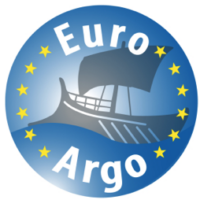 France (Coriolis) hosts one of the two Argo Global Data Assembly Centres (GDAC) that make up the international Argo Data System, along with a series of national Data Assembly Centres and several Regional Centres.
France (Coriolis) hosts one of the two Argo Global Data Assembly Centres (GDAC) that make up the international Argo Data System, along with a series of national Data Assembly Centres and several Regional Centres.
The French Argo Data Centre, Coriolis, processes float data deployed by France and from other European (Germany, Spain, Netherlands, Norway, Italy, Finland, Greece, Bulgaria) and several non-European countries (e.g. Chile, Mexico).
Euro-Argo partners also lead and contribute to 3 Argo Regional Centres dedicated to the Atlantic, Mediterranean and Black Seas and Southern Ocean.
EuroArgo data, as part of the Argo international programme are relayed and made publicly and freely available within hours after collection.
EurOBIS is an online marine biogeographic database compiling data on all living marine creatures. It aims to centralise the largely scattered biogeographic data on marine species collected by European institutions and to make these data freely available and easily accessible.
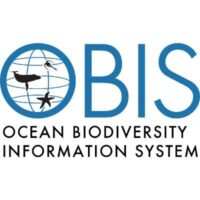 EurOBIS is one of the regional nodes of OBIS, the international Observation Biodiversity Information System. Together with the host organisations or institutes of the other OBIS nodes, the host of EurOBIS, the Flanders Marine Institute in Belgium, has committed to a continuous support of OBIS, translated in serving freely available occurrence data on European marine species to OBIS.
EurOBIS is one of the regional nodes of OBIS, the international Observation Biodiversity Information System. Together with the host organisations or institutes of the other OBIS nodes, the host of EurOBIS, the Flanders Marine Institute in Belgium, has committed to a continuous support of OBIS, translated in serving freely available occurrence data on European marine species to OBIS.
The ICOS Ocean Network provides long-term oceanic observations required to understand the present state and better predict future behaviour of the global carbon cycle and climate-relevant gas emissions.
The ICOS Data Portal provides observational data and elaborated products on greenhouse gases. In addition to providing free greenhouse gas data at the Data Portal, ICOS offers services for visualisation, analysis and management of data, as well as support for co-operation in a Virtual Research Environment.
SeaDataNet is a distributed Marine Data Infrastructure for managing, indexing and providing access to marine data sets and data products. The data are acquired by European organisations via research cruises and other in situ observational activities in European coastal marine waters, regional seas and the global ocean.
Funded by the EU, the ODIP partnership provides a forum to harmonise the diverse regional systems, while advancing the European contribution to the global system. The products and services developed by ODIP are actively promoted at the international level through IOC/IODE, the Research Data Alliance, and GEOSS striving for global interoperability beyond the ODIP partners.
The ODIP platform organises international workshops to foster the development of common standards and develop prototypes to evaluate and test selected potential standards and interoperability solutions. ODIP includes all the major organisations engaged in ocean data management in EU, US, and Australia.
The IODE programme of the “Intergovernmental Oceanographic Commission” (IOC) of UNESCO aims to enhance marine research, exploitation and development, by facilitating the exchange of oceanographic data and information between participating Member States, and by meeting the needs of users for data and information products.
The IODE system forms a worldwide service oriented network consisting of Designated National Agencies, National Oceanographic Data Centres, Responsible National Oceanographic Data Centres and World Data Centres – Oceanography. During the past 50 years, IOC Member States have established over 80 oceanographic data centres in as many countries. This network has been able to collect, control the quality of, and archive millions of ocean observations, and makes these available to Member States.
The IODE Ocean Data and Information System (ODIS) is the e-environment where users can discover data, data products, data services, information, information products and services provided by Member States, projects and other partners associated with IOC.



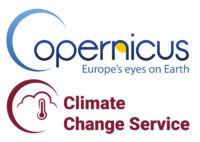
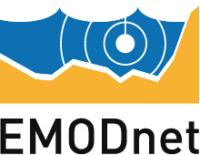

 www.eurobis.org
www.eurobis.org www.icos-cp.eu/data-services
www.icos-cp.eu/data-services www.seadatanet.org
www.seadatanet.org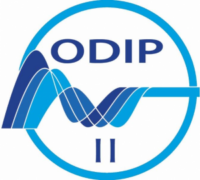 www.odip.eu
www.odip.eu
